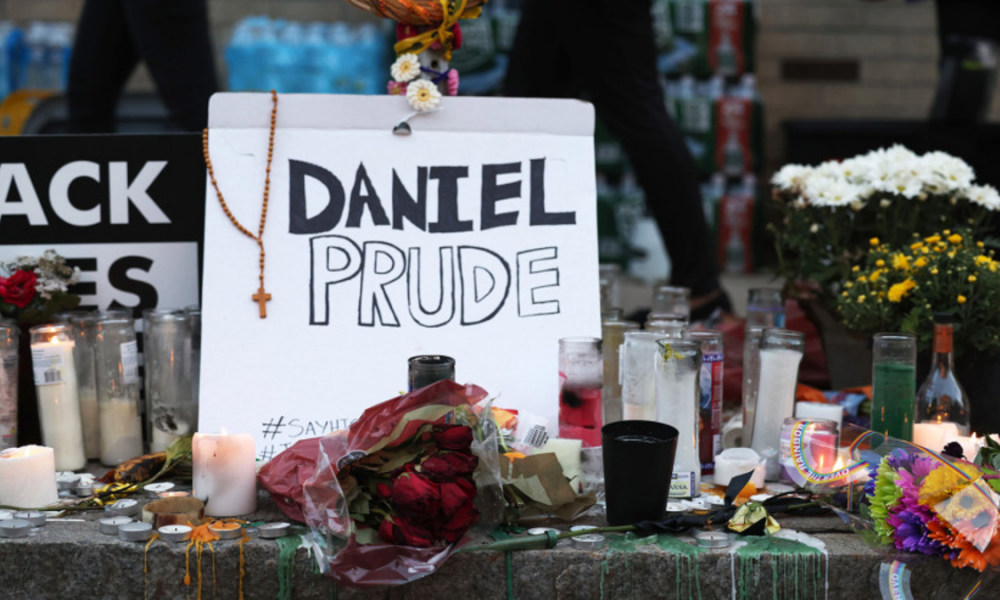On Friday, New York General Attorney Letitia James released the grand jury proceedings’ transcripts. This is the first time that details of a police-involved death case are publicly revealed in New York’s history.
What We Know:
- The documents detail nine days of testimony from Daniel Prude’s brother, police officers, experts, and other witnesses. It also reports that jurors voted 15-5 not to charge the three officers. The initial announcement was made in February; James said her office concluded there was sufficient evidence to present to the jury. She also claimed they presented the “most comprehensive case possible.”
- James remained “extremely disappointed with the verdict.” A judge granted her permission to unseal and publicly release the grand jury minutes associated with the investigation. She wanted to inform Daniel Prude’s family, the Rochester community, and communities around the country about the severity of this non-sentencing. She says this will help effect the change the country desperately needs.
“Serious reform is needed, not only at the Rochester Police Department but to our criminal justice system as a whole,” she stated.
- James’ office revealed the grand jury met on nine separate occasions between October 2020 and February 2021. Altogether, they spent more than nine hours in total. Rochester First holds all the transcripts of the proceedings.
- Jurors decided not to charge the policemen involved in the killing despite witnesses’ testimonies. The medical examiner affirmed Prude’s cause of death was a combination of asphyxia complications from excited delirium and PCP intoxication. Additionally, he testified that the chemical changes within Prude’s body came from respiratory failure. No notable injuries in the cardiovascular or respiratory systems were present, though. Ultimately, he declared, Prude’s death was a homicide. He believes this because his death occurred at the hands of another person. An EMT mentioned he never saw somebody restrained in such a manner and wondered if officers had permission to do so.
- Police at the scene also provided evidence. One officer who never got physical with Prude said he kept trying to get up. He was also kicking his feet. This was why one officer made contact even though Prude was handcuffed. Furthermore, he said the three policemen used the segmenting technique taught in training. After this, Prude’s breathing became labored, his position changed, and he vomited. Another policeman told the jury he laughed at some of Prude’s “off the wall comments.” This happened before handcuffing Prude.
- The Prude family lawyers expressed outrage at the decision. Don Thompson, a lawyer for Daniel’s brother Joe, dislikes the advantages and lack of consequences given to police officers. Another attorney, Elliot Shields, believes the attorney general’s office wanted jurors not to charge the law enforcement agents. He suggested if policemen “hadn’t laid a hand on him,” Daniel would be alive. However, the lawyer assisting on behalf of the officers replied the result fits the case. He apologized if “it does not fit Mr. Shields’ agenda.”
- Prude’s death is among the many who have died at the hands of the police. Yet, U.S. citizens fight for police reform to reduce the number of deaths significantly. Derek Chauvin is currently awaiting sentencing for the death of George Floyd, which occurred two months after Prude’s death. After the shooting of Daunte Wright, Brooklyn Center residents called for the resignation of Officer Kim Potter and Chief Tim Gannon.
While the police officers avoided criminal charges, they may still be held accountable alongside the city of Rochester. This is because Prude’s estate has filed a civil lawsuit. Federal civil rights action is still possible, as well as disciplinary charges. US News explains more on possible outcomes. Nevertheless, it raises the possibility of justice for Prude’s untimely death.



